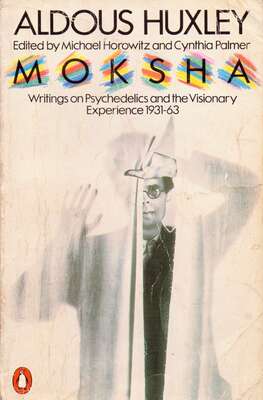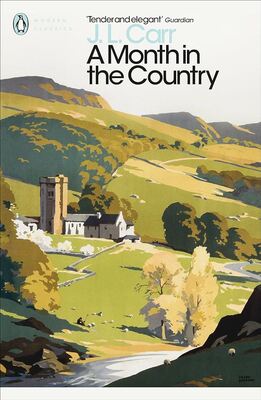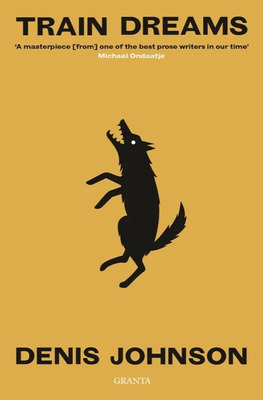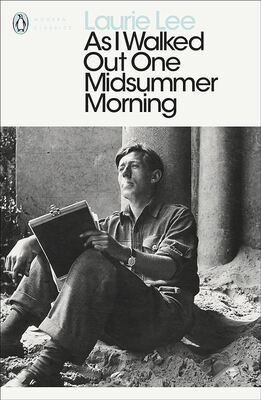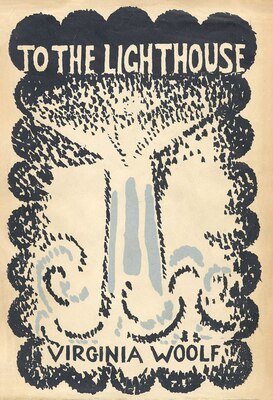
She could see it all so clearly, so commandingly, when she looked: it was when she took her brush in hand that the whole thing changed. It was in that moment’s flight between the picture and her canvas that the demons set on her who often brought her to the verge of tears and made this passage from conception to work as dreadful as any down a dark passage for a child. Such she often felt herself – struggling against terrific odds to maintain her courage; to say: ‘But this is what I see; this is what I see’, and so to clasp some miserable remnant of her vision to her breast, which a thousand forces did their best to pluck from her. And it was then too, in that chill and windy way, as she began to paint, that there forced themselves upon her other things, her own inadequacy, her insignificance, keeping house for her father off the Brompton Road, and had much ado to control her impulse to fling herself (thank Heaven she had always resisted so far) at Mrs. Ramsay’s knee and say to her – but what could one say to her? ‘I’m in love with you?’ No, that was not true. ‘I’m in love with this all’, waving her hand at the hedge, at the house, at the children? It was absurd, it was impossible. One could not say what one meant.
I saw what Guardi had seen and (with what incomparable skill) had so often rendered in his paintings—a stucco wall with a shadow slanting across it, blank but unforgettably beautiful, empty but charged with all the meaning and the mystery of existence. The revelation dawned and was gone again within a fraction of a second.
Yesterday, passing the open door leading into the private garden, I saw Fenwick with his mallet raised. The steam from the tea-urn rose in the middle of the lawn. There were banks of blue flowers. Then suddenly descended upon me the obscure, the mystic sense of adoration, of completeness that triumphed over chaos. Nobody saw my poised and intent figure as I stood at the open door. Nobody guessed the need I had to offer my being to one god; and perish, and disappear. His mallet descended; the vision broke.
There was so much time that marvellous summer. Day after day, mist rose from the meadow as the sky lightened and hedges, barns and woods took shape until, at last, the long curving back of the hills lifted away from the Plain. It was a sort of stage-magic – ‘Now you don’t see; indeed, there is nothing to see. Now look!’ Day after day it was like that and each morning I leaned on the yard gate dragging at my first fag and (I’d like to think) marvelling at this splendid backcloth. But it can’t have been so; I’m not the marvelling kind. Or was I then? But one thing is sure – I had a feeling of immense content and, if I thought at all, it was that I’d like this to go on and on, no-one going, no-one coming, autumn and winter always loitering around the corner, summer’s ripeness lasting for ever, nothing disturbing the even tenor of my way (as I think someone may have said before me).
Beyond, he saw the Canadian Rockies still sunlit, snow-peaked, a hundred miles away, as if the earth were in the midst of its creation, the mountains taking their substance out of the clouds. He’d never seen so grand a prospect. The forests that filled his life were so thickly populous and so tall that generally they blocked him from seeing how far away the world was, but right now it seemed clear there were mountains enough for everybody to get his own. The curse had left him, and the contagion of his lust had drifted off and settled into one of those distant valleys.
I followed this straight southern track for several days, living on figs and ears of wheat. Sometimes I’d hide from the sun under the wayside poplars, face downwards, watching the ants. There was really no hurry. I was going nowhere. Nowhere at all but here. Close to the spicy warmth of this foreign ground a few inches away from my face. Never in my life had I felt so fat with time, so free of the need to be moving or doing. For hours I could watch some manic ant dragging a piece of orange peel through the grass, pushing and pulling against impossible barriers in a confused and directionless frenzy.
Ah, those days … for many years afterwards their happiness haunted me. Sometimes, listening to music, I drift back and nothing has changed. The long end of summer. Day after day of warm weather, voices calling as night came on and lighted windows pricked the darkness and, at day-break, the murmur of corn and the warm smell of fields ripe for harvest. And being young. If I’d stayed there, would I always have been happy? No, I suppose not. People move away, grow older, die, and the bright belief that there will be another marvellous thing around each corner fades. It is now or never; we must snatch at happiness as it flies.
the natural state of the sentient adult is a qualified unhappiness. I think also that in an adult the desire to be finer in grain than you are, “a constant striving” (as those people say who gain their bread by saying it) only adds to this unhappiness in the end—that end that comes to our youth and hope. My own happiness in the past often approached such an ecstasy that I could not share it even with the person dearest to me but had to walk it away in quiet streets and lanes with only fragments of it to distil into little lines in books—and I think that my happiness, or talent for self-delusion or what you will, was an exception.
